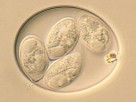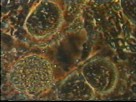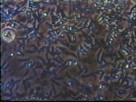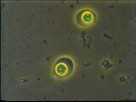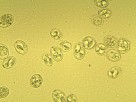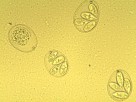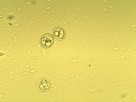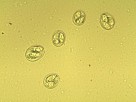Coccidiosis in the domestic fowl (Gallus domesticus), is a parasitic disease of the intestine caused by parasitic protozoa (coccidia) belonging to the genus Eimeria. The coccidian parasite is almost universally found wherever chickens are raised.
Coccidia are host-specific, so that means Eimeria that target chickens will not target any other species as potential hosts. Despite the considerable progress made in the field of chemotherapy, animal husbandry, nutrition and genetics, coccidiosis remains one of the most expensive and prevalent diseases of domestic fowl worldwide.
Coccidia are obligate intracellular parasites that multiply rapidly and have a high reproductive potential. Coccidian infection results in a massive invasion of parasites and subsequent damage to the intestinal wall of the host. The disease is characterized by enteritis of varying degrees resulting in impaired digestion and absorption of nutrients, and subsequent diarrhoea that may lead to death. Sub-clinically infected birds have poor feed conversion efficiency and low performance in production.
pics: Coccidias
When a chicken ingests germs (oocysts) of parasites, hundreds of thousands of new oocysts are produced within a week and are shed via faeces to the litter. Thanks to the special composition of their walls, oocysts are resistant to common disinfectants and remain viable in poultry sheds for several months to one year. The most frequent sources of coccidian infection are litter, faeces and dust. Mechanical spreading of the infection occurs for example, by personnel, birds, earthworms and insects.
Thorough cleaning of poultry houses and strict on-farm bio-security measures are crucial for the maintenance of standard hygiene, by which the number of oocysts in the environment is minimized, prior to the introduction of new chickens.
Mortality due to coccidiosis is not usually the general rule in broiler production. However, an impaired feed conversion and reduced weight-gains are significantly reflected in the profit. Hence, in a highly competitive market, an incidence of sub-clinical coccidiosis would mean a considerable financial loss.
In domestic fowl seven species of Eimeria are known to infect chickens, namely: Eimeria acervulina, E. brunetti, E. maxima, E. mitis, E. necatrix, E. praecox and E. tenella. However, not all species have equal pathogenicity. In the poultry industry four Eimeria species are known to cause significant problems, namely: Eimeria acervulina, E. maxima, E. tenella and E. necatrix.
obr: Coccidia oocysts
Installing strict bio-security and good zoo-hygiene measures on a farm are important pre-conditions for coccidiosis prevention. The control of coccidiosis can be achieved mainly by either medical prophylaxis - the use of in-feed-anticoccidial drugs or by the use of live coccidiosis vaccines.

